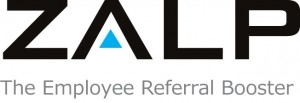Why Good Employee Referral Programs Fail

Employee Referral programs are now an integral part of recruiting strategy of all organizations, irrespective of nature and size of business, due to the overwhelming advantages it offers both in terms of cost and quality of hire.
It is easy to design a good referral program; however running it successfully requires attention to a whole lot of details, failing which a well-designed referral program is also likely to fail.
Some of the key reasons for failure of a good employee referral program include:
• Slow or no response to an employee referral from HR
• Excluding individuals and departments from participating in the scheme
• Not enough reinventing and remarketing of the referral program
• Providing too little or too much feedback on bad referrals
• Delayed payment
• Rewarding too much or too little
• No referral metrics tracking
• Not using technology to enable participation by remote workforce
Slow response or no response at all to an employee referral is the surest way to kill the referral program. Both the referring employee and the referred candidate are likely to get discouraged, and not refer anyone else in future if there is no response within a reasonable time frame.
Excluding departments and Individuals from participating in the scheme means that key people in the company, with high external visibility are denied participation in the scheme. Not only is it grossly unfair on them, it also means that highly visible people in your organization are not encouraged or motivated to refer candidates they know will be able to fit into the organizational culture.
Even the most well designed employee referral program tends to start showing significantly lower results over a period of time, if not upgraded or remarketed. With time, changes in technology and social media behavior as well as changes in organizational needs means that organizations need to continuously evaluate and reinvent and re communicate the program to employees for continued success.
Providing too little or too much feedback on bad referrals turns out to be a key deterrent. If you don’t provide employees feedback on a bad referral, however well intentioned, future referrals from them will continue to be of the same quality. On the other hand providing too much feedback to an employee or holding it against him for providing a bad referral discourages other employees to make a referral as well.
Delaying payment for successful employee referrals, means that employees do not get to see the results of their efforts immediately. For some employees delayed gratification amounts to no gratification at all, and this is a major reason for the failure of many employee referral programs.
Rewarding too little drives down participation, as the effort required is not perceived to be worth the reward. Rewarding too much on the other hand means that employees may start spamming the referral scheme with profiles to increase the probability of conversions, defeating the purpose of the employee referral policy.
While running a robust employee referral program, it is imperative to track referral metrics to review successes and failures. In the absence of the metrics, you will not have data to understand why a particular team or event was very successful in hiring whereas others failed, as participation rates vary between teams and even with recruiting events. Employee referral tracking & reviewing what drives success and the areas of improvement helps to ensure that failures are not repeated. A robust employee referral tracking software goes a long way in streamlining this crucial activity.
Lastly, with the growing trend of remote working, an employee referral scheme, which is not technologically enabled to allow employees to participate from anywhere, from any device faces a higher probability of failure.
It is not enough to design a good referral program, ensuring that it is implemented well is equally essential to ensure sustained success in your hiring efforts.
